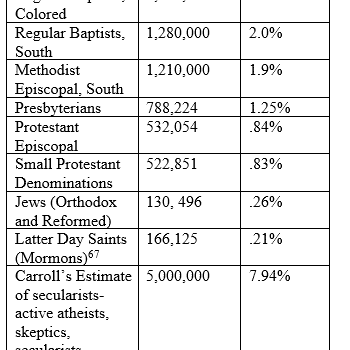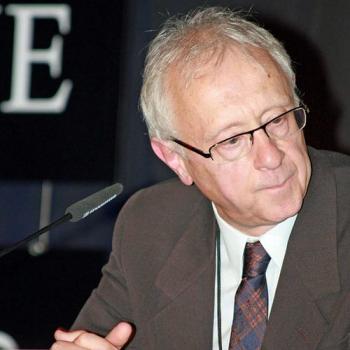During the gay marriage debate, such as it was, it was charged that opponents, such as traditional Christians, don’t even have a good definition of marriage. Actually, they do.
The Bible, of course, such as this text, the core of which appears not only in the teachings of Jesus but in the Old Testament (Genesis 2:14) and in the Epistles (Ephesians 5:21):
The nature of marriage and its purposes are also well-described in the church’s liturgy in the traditional wedding service: the rite of Holy Matrimony. (Connect that terminology to
this.)
In his article that we discussed last time, Why Most Anglican Clergy Now Approve Gay Marriage—And What This Means For The Future Of The Church, Carl Trueman quotes the Anglican Book of Common Prayer, which says of marriage,
First, It was ordained for the procreation of children, to be brought up in the fear and nurture of the Lord, and to the praise of his holy Name.
Secondly, It was ordained for a remedy against sin, and to avoid fornication; that such persons as have not the gift of continency might marry, and keep themselves undefiled members of Christ’s body.
Thirdly, It was ordained for the mutual society, help, and comfort, that the one ought to have of the other, both in prosperity and adversity. Into which holy estate these two persons present come now to be joined.
This well-describes the companionate dimension of marriage, the sexual dimension, and the parenting dimension. Though some couples cannot have children, the other dimensions remain.
Trueman comments, referring to the findings that in the UK, 53.4% of the clergy in the church of England support same-sex marriage, with 36.5% opposed, a major jump from 2014 when the government legalized same-sex marriage, when only 39% approved and 51% were opposed.
A majority of Anglican clergy apparently do not believe in the first purpose anymore, for gay marriages by definition produce no children. Nor do they believe in the second. They clearly do not regard the body—the sexed body—nor the use of its sexual organs as having any intrinsic moral status. And so “marriage” becomes just an intense form of friendship. Ironic that Anglican clergy are abandoning one of the best liturgical statements of what marriage actually is. Indeed, it is not that the clergy now believe in gay marriage; rather, it is that they no longer believe in marriage at all. It is neither pastoral nor caring to deny the moral significance of the sexed human body, nor to participate in the further demolition of an institution whose purpose is to provide children with a loving and stable environment.
Trueman understands why ministers have become fine with this: “The clergy’s shift on this issue might well be motivated by pastoral intuitions to affirm people. It is a caring vocation and few, one hopes, enter it with a view to hurting others. Kindness is the order of the day. Ironically, however, this shift buys the immediate possibility of affirmation at huge long-term cost.”
I like the rite of Holy Matrimony in the Lutheran Service Book (p. 275), which states the same purposes in a different way and includes the creational and Christological dimension of marriage:
Dearly beloved, we are gathered here in the sight of God and before His Church to witness the union of this man and this woman in holy matrimony. This is an honorable estate instituted and blessed by God in Paradise, before humanity’s fall into sin.
In marriage we see a picture of the communion between Christ and His bride, the Church. Our Lord blessed and honored marriage with his presence and first miracle at Cana in Galilee. This estate is also commended to us by the apostle Paul as good and honorable. Therefore, marriage is not to be entered into inadvisedly or lightly, but reverently, deliberately, and in accordance with the purposes for which it was instituted by God.
The union of husband and wife in heart, body, and mind is intended by God for the mutual companionship, help, and support that each person ought to receive from the other, both in prosperity and adversity. Marriage was also ordained so that man and woman may find delight in one another. Therefore, all persons who marry shall take a spouse in holiness and honor, not in the passion of lust, for God has not called us to impurity but in holiness. God also established marriage for the procreation of children who are to be brought up in the fear and instruction of the Lord so that they may offer Him their praise.
For these reasons God has established the holy estate that [name] and [name] wish to enter. They desire our prayers as they begin their marriage in the Lord’s name and with His blessing.
Photo: Wedding at St. Paul Lutheran Church, Grafton, Wisconsin, by Runner1928, CC BY-SA 4.0 <https://creativecommons.org/licenses/by-sa/4.0>, via Wikimedia Commons

















